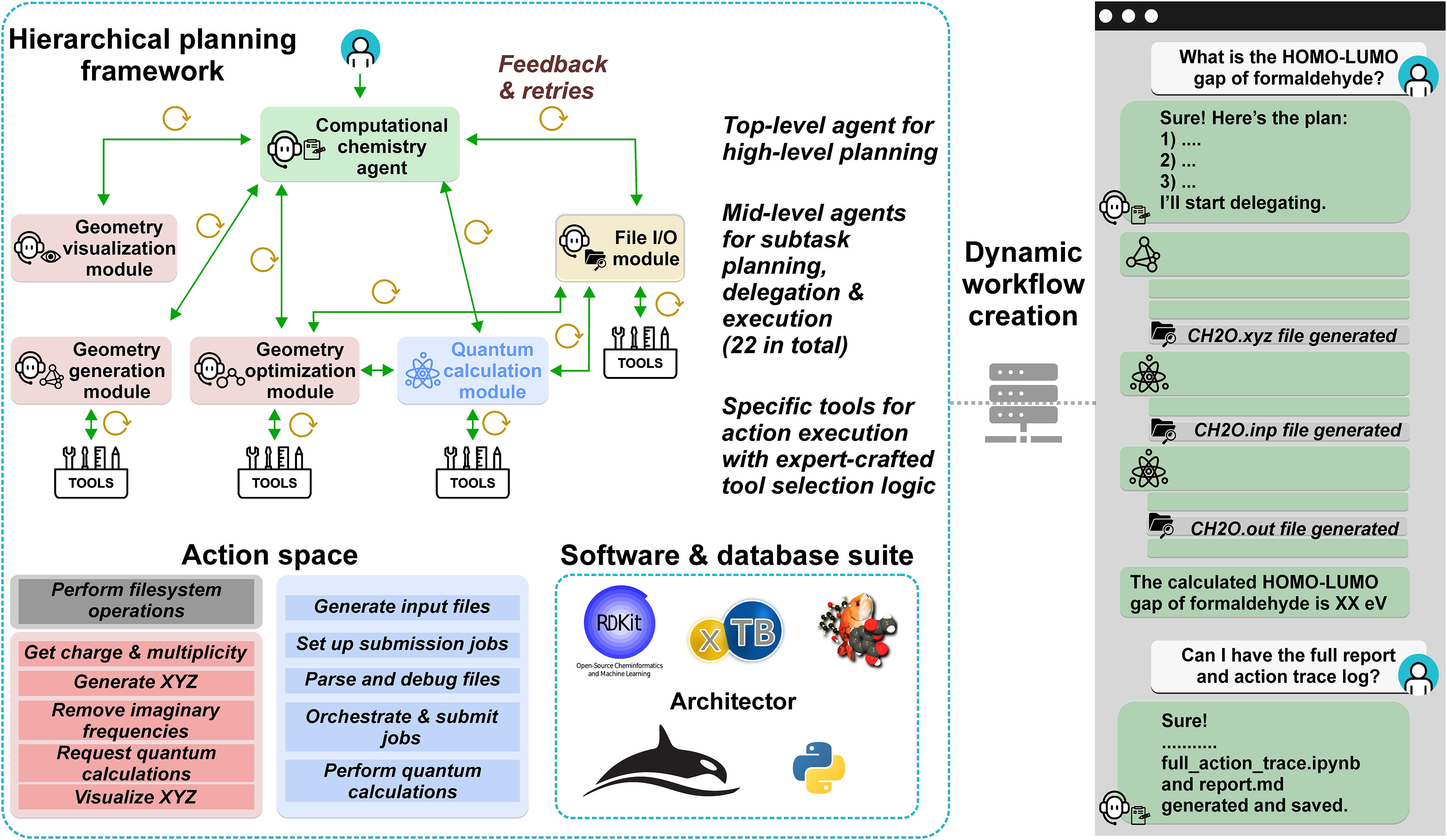
One central research direction of our group is building intelligent, accessible scientific agents that accelerate scientific discovery. We explore how large language models, tool-augmented reasoning, and modular agentic architectures can be combined to create systems that understand scientific intent and orchestrate complex workflows. Our work aims to enable researchers to leverage state-of-the-art methods in fields such as chemistry, physics, and materials science.

In our quantum subgroup within the Matter Lab, we focus on advancing both NISQ and fault-tolerant quantum chemistry algorithms. We develop and implement NISQ algorithms, such as the Variational Quantum Eigensolver (VQE) and Generative Quantum Eigensolver (GQE), while also exploring fault-tolerant methods like Hamiltonian simulation and methods for solving partial differential equations (PDEs). Our mission is to maximize the utility of current quantum processors by optimizing compilation, minimizing noise, and running efficient, smart algorithms. We find novel ways of combining machine learning algorithms with quantum processes and apply these techniques to quantum chemistry, drug discovery, and more, pushing the current boundaries of quantum computing applications.

We work on developing computational tools to accelerate standard electronic structure methods. These vary from using machine learning for quantum monte carlo, hamiltonian learning, or automatic differentiation. Moreover, similar development happens in tandem for the development of more efficient quantum computing algorithms. Additionally, we routinely use density functional theory to supplement self-driving labs with in-silico chemical experiments.
The group performs simulations, experiments, and statistical learning on a wide variety of molecular and solid-state materials. Modelling and experimentation often go hand-in-hand - the former helps us “see” information at the level of detail often not attainable by experiments and can serve as a powerful tool for predicting novel materials or providing experimental support, while the latter is indispensable for realizing theoretical predictions or producing real materials with practical applications. The results from modelling and experimentation are then coupled with statistical learning to accelerate the discovery of novel molecules and materials.

Our Self-driving Lab subgroup explores a wide range of topics, including AI-driven optimization techniques, autonomous robotics systems for performing experiments, and automated characterization methods for data analysis. A growing area of research is the application of computer vision in creating visually-aware robotic systems capable of conducting complex chemical and materials science experiments autonomously.
More topics